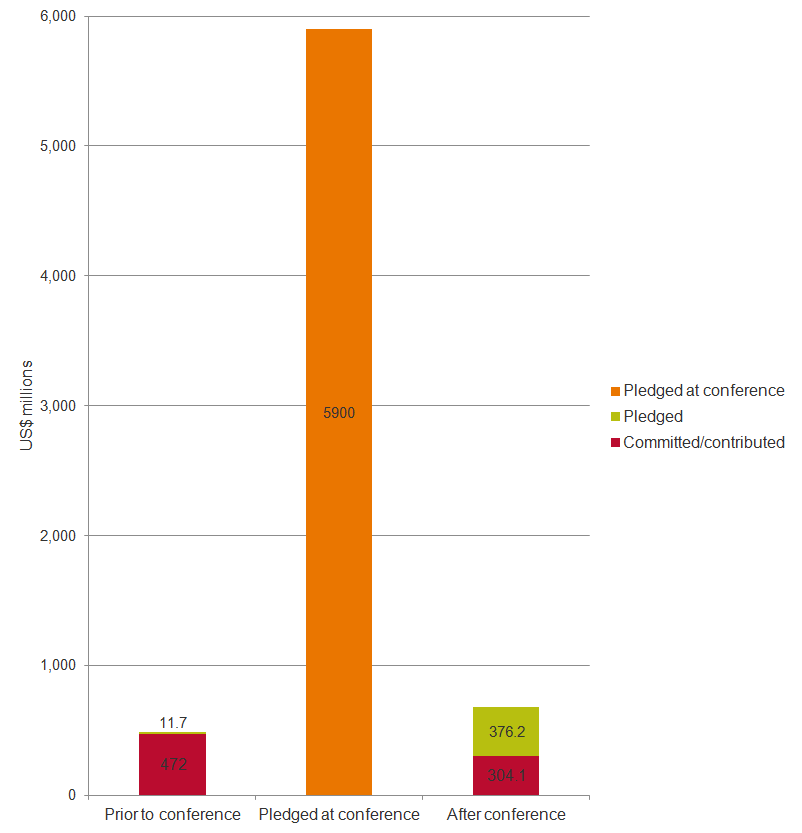To meet the urgent needs of people affected by the Syria crisis, donors must promptly deliver against funding commitments
As the Syria conflict enters its sixth year, the overwhelming scale of displacement and needs both within Syria and in the wider region continues to rise. A record of more than US$11 billion was pledged to meet immediate and longer term needs of people affected in the region at the Supporting Syria and the Region conference in London in February 2016. A total of US$5.9 billion was pledged for 2016, and a further US$5.5 billion for 2017 to 2020.
Almost six weeks on, there is a considerable shortfall between funding pledged at the conference and funding received and reported, with only 11% of the funds pledged for 2016 (US$680.3 million) recorded on the UN Office for the Coordination of Humanitarian Affairs (OCHA)’s Financial Tracking Service (FTS). Following the conference there has been very little additional funding committed, according to the FTS, with total funds committed after the conference being lower than those prior to the conference.
Funding pledged at the 2016 Supporting Syria and the Region conference has not yet translated into a notable increase in spending
Source: Development Initiatives based on the UN OCHA’s FTS and Co-host’s statement annex: fundraising summary.
Notes: ‘Committed/contributed’ and ‘pledged’ refer to how funding is recorded on the FTS. ‘Pledged at conference’ refers to the pledges received at the Supporting Syria and the Region conference in London held on 4 February 2016.
To ensure that the urgent needs of people affected by the Syria crisis are met, donors must step-up in fulfilling their pledges made at the conference. Early delivery against pledges is crucial to enable agencies on the ground to plan in the longer term and effectively deliver services in response to current and growing needs, both within Syria and in the wider region. For a more detailed analysis of funding to the education sector since the conference, highlighting the importance of early action and timely fulfilment of pledges, see the new blog from the Malala Fund #NotLost: Time for action for Syria’s children, which features analysis from Development Initiatives.
The current shortfall between pledges made at the conference and subsequent commitments may be exaggerated by poor and slow reporting to the FTS. Better and timely reporting is crucial for monitoring donor accountability and the fulfilment of pledges. Real-time data on pledges, commitments and disbursements is essential for agencies to understand and respond to the changing picture of funding flows.
In recognition of this, the UN Secretary General’s recent report One Humanity: Shared responsibility highlights the need for increasing transparency of humanitarian financing, and it urges all actors within the humanitarian community to publish to the recently upgraded International Aid Transparency Initiative (IATI) Standard.
Related content
Priorities for the UK’s incoming Secretary of State Alok Sharma
As Alok Sharma takes office as Secretary of State, DI's Amy Dodd sets out key priorities for the UK and its global development agenda.
From review to delivery on the Global Goals – what should the immediate priorities be for the UK government?
On 26 June, the UK government published its Voluntary National Review measuring delivery against the Global Goals - but does it accurately capture progress?
Three priorities for the High-level Political Forum 2019
DI Director of Partnerships & Engagement Carolyn Culey sets out three key priorities for closing the gap between the poorest and the rest at HLPF 2019
